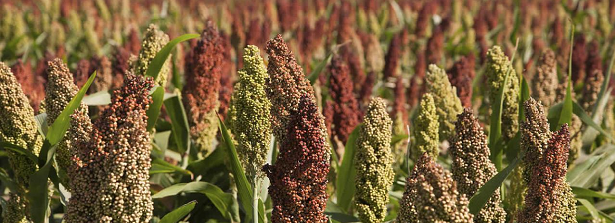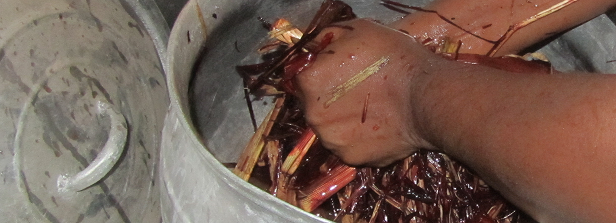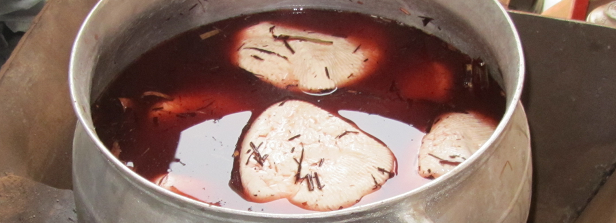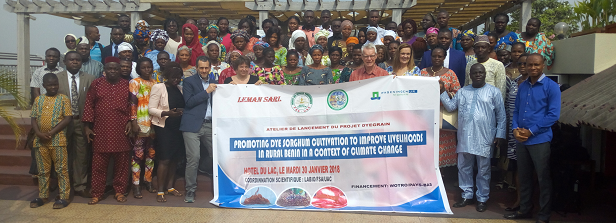Promoting dye sorghum cultivation in Benin (Dyegrain)

Duration: 19 June 2017 to 15 June 2020
Project information
Aim: Dye sorghum varieties have the distinct advantages to produce bio-colorants-containing leaf sheaths, while producing at the same time grain, which at present is not yet fully valorised in Benin for human consumption. This project “Promoting dye sorghum cultivation to improve livelihoods in rural Benin in a context of climate change (Dyegrain)” addresses the commercial production of dye sorghum and the processing of its bio-colorants and grain in order to improve rural livelihoods in Benin.
Objectives: The main objective is to valorize the natural bio-colorants and grains of dye sorghum to improve livelihoods in rural Benin. More specifically to:
- Select elite dye sorghum varieties;
- Optimize agronomic management practices;
- Establish sustainable supply chains for leaf sheaths and dye sorghum grain;
- Develop commercial extraction methods for dye sorghum bio-colorants;
- Develop processing methods to enhance edibility of dye sorghum grain;
- Incorporate socio-economic factors influencing dye sorghum production;
- Train rural farmers and local SMEs for commercial production and processing of dye sorghum;
- Disseminate the project outputs.
Method: The project is structured in 8 work packages to be carried out in an interdisciplinary setting that addresses the important links of the production chain: (i) Varieties’ selection and seed production, and optimization of cultivation practices, (ii) Extraction of bio-colorants and grain processing into foods, (iii) Quality assurance in the supply chain, (iv) Socio-economic profiling of production and marketing of the dye sorghum products and (iv) Technology transfer to stakeholders. Capacity building is also ascertained in 4 research projects for MSc students.
Country: Benin.
Dutch policy goals: Eradicating existing hunger and malnutrition; Promoting inclusive and sustainable growth in the agricultural sector.
Progress reports
Year 1: This project started on 15 September 2017 and aims to valorize the dye sorghum to improve livelihoods in rural Benin. Seeds of dye sorghum varieties have been collected and trials for the selection of elite varieties are ongoing. Farmers have successfully cultivated the dye sorghum crop on the commercial basis and Leman sarl purchased a total of 1800 Kg of fresh leaves for international trade. Approaches for appropriate postharvest handling of leaf sheaths have been developed at Leman Sarl and the company has successfully exported a first batch of 250 Kg of dry leaf sheaths to Naturex in France. A second batch of 600 Kg of leaf sheaths is currently ready at Leman Sarl for exportation. The project committed ACT students at Wageningen University & Research to explore the potential of dye sorghum and create international business cases for Benin. During a preliminary experiment, the team has successfully malted and brewed grain of dye sorghum using a traditional beer process. Management and coordination mainly focused on preparation and organization of the launching workshop in Cotonou, two follow-up meetings and five steering committee meetings; communication between partners through Skype meetings, email exchanges and visits. Three master students were recruited and have completed their research proposals.



